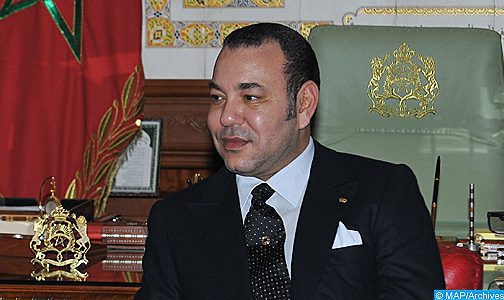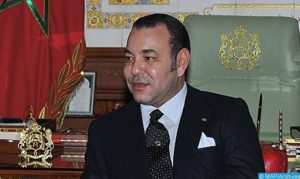
 King Mohammed VI announced, Monday, that Morocco will pay for the feasibility studies to finalize the Climate Investment Plan for the Sahel region.
King Mohammed VI announced, Monday, that Morocco will pay for the feasibility studies to finalize the Climate Investment Plan for the Sahel region.
Addressing the 1st Conference of the Climate Commission for the Sahel region, convened in Niamey, the capital of Niger, the Sovereign underlined the importance of the Climate Investment Plan for the Sahel region and its Priority Regional Program, which will “complete the vital projects underway”.
The Commission can count on the Climate Change Competence Center of Morocco (4C Maroc), particularly in terms of capacity building for its members, the monarch pointed out in his message read out by Foreign minister Nasser Bourita.
Set up in 2014, the Center is a national and continental platform of excellence for the development and dissemination of knowledge and best practices on climate change, said the King, underlining the adverse impacts of climate changes on the Sahel’s socioeconomic development and regional stability.
Expressing concern over the impact of climate change on the continent, he explained that “Food shortages, dwindling water supplies and desertification caused by global warming will continue to push our youth into exile, depriving our Continent of part of its crucial human resources.”
“For Africans, the fight for climate justice is a fight for access to a better, dignified life and to a bright future,” said the King, noting that climate justice should not be a mere slogan but rather a requirement for all of us: a requirement to give our populations access to basic resources.
“It is in this way that we shall prevent our youth from succumbing to despair, stopping them, at the same time, from falling prey to criminal and terrorist organizations,” underlined the Sovereign.
“African youth expects us to open up the wide range of possibilities available and to set our Continent on a course of action that creates opportunities,” said the King. He insisted that “Africa’s future depends on our capacity to imagine new solidarity-based answers, building on a genuine commitment that respects all partners, in the South as well as in the North.”
The Sahel region can become a model of advanced regional integration in economic, environmental, political and human terms, affirmed the Sovereign, describing the Climate Commission for the Sahel Region as one of the levers that will enable it to achieve this objective.
“This is where history began, and this is where the region’s future will be decided. Coming generations are, indeed, entitled to a political commitment backed by concerted, solidarity-based action to address climate-related challenges,” stressed the Monarch.
He recalled in this regard the launching by the African Heads of State, at the Africa Action Summit, held in Nov.2016, in Marrakech, on the sidelines of COP22, a dynamic process around ambitious, concrete transnational projects led by three Commissions, of which Morocco is a founding partner.
Heads of state of 17 countries met on Monday in Niamey to approve a climate investment plan, focusing on six projects meant to limit greenhouse gas emissions and to help people adapt to climate change.
The Sahel region, which includes East, Central and West African countries, and which is home to more than 500 million people, is considered especially vulnerable to climate change.
